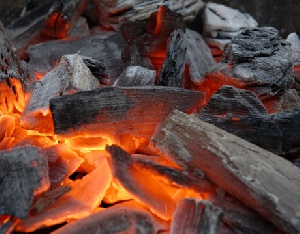“We will make electricity so cheap that only the rich will burn candles”.
These were the famous words of American inventor, Thomas Edison. Some 200 plus years later, his prediction seems to have fallen right in place. This was initially fuelled by a great discovery during the Industrial Revolution when factories and later homes relied on that dark substance people came to affectionately call ‘King Coal’. Online real estate portal, Lamudi, investigates the viability of coal-powered plants in Ghana.
Coal has been fuelling the world’s energy demands for about two centuries now and it is no coincidence that it provides 41% of our global electricity needs. A look at some major economic power players tells the story. The United States relies on coal for 45% of their electricity generation.
Germany’s coal-generated electricity totals 41%, Australia produces 78% of electricity from coal, China, 79% and South Africa, Africa’s biggest generator of electricity, accounts for 93% of electricity generated from coal. It could be said that these countries have immensely benefitted from the production of coal-powered plants as these countries are either super powers or emerging powers in the realm of economics.
Ghana has recently declared its intention of producing 5000 megawatts of electricity from the current 2800 megawatts by 2016. The nation has sought to achieve this ambitious task by adding other sources of power generation to its already existing ones. The question however, is if hydro, solar and thermal energy are enough to drive such ambitions? These sources of energy can be very costly and juxtaposing our situation with that of coal-dependent countries, it may seem a bit naïve for the country to avert the adoption of coal.
The Head of Strategic Policy and Planning at the Energy Commission, Dr Joseph Essandoh-Yeddu. Ghana, believes that Ghana stands to lose out if it turns a blind eye to coal-powered electricity generation. According to him, Ghana cannot continue to rely on gas from Nigeria as the Western African nation has plans of constructing a $14billion pipeline via Algeria to Europe.
“Germany, which has about 25% renewable energy of its total energy sector has decided to shift more reliance on coal due to the high tariffs associated with renewable energy.
“Gas may be a good alternative for Ghana, however, reliance on the West African Gas Pipeline may not be the solution to our energy problems. It becomes even more worrying considering that Nigeria is planning to construct a pipeline enroute to Europe via Algeria to the tune of $14billion, which may lead them to turn their focus away from Ghana.
“The key interest of all major countries is to make energy accessible and affordable to their citizens. Why are we in Ghana and Africa not doing that,” he rhetorically asked.
As the importance of coal to electricity generation has been drummed, it is also quick to point out that coal can be used for other means in the real estate sector.
Steel Steel is needed in the construction of high rise buildings and Ghana would need to have more in stock to meet growing demand. There are two main steel production routes, that is, the integrated steel making route and the electric arc furnace route. It is estimated that an average of 770kg of coal is needed in the integrated steel making route aside other raw materials in the production of a tonne of crude steel. The electric arc furnace route uses recycled steel and electricity and could consist of as much as 150kg of coal to produce a tonne of crude steel.
Cement Cement is a crucial component in the construction process in Ghana. About two-thirds of Ghanaian homes are built with cement blocks or concrete. This is where coal plays an important role. Coal combustion products, which are by-products generated from burning coal in coal-fired power plants, can be used to replace or supplement cement in concrete. One such by-product is fly ash which is used exactly for that purpose and has the added benefit of reducing greenhouse gas emissions.
Other components that entail the use of coal are electricity pylons, roads and even solar panels. Clearly, the use of coal in electricity generation would enable Ghana to better negotiate on import prices of coal while providing by-products as a cheaper alternative to cement production. This in earnest is expected to keep home prices down or stable at the very least.
The benefits derived from coal are numerous to say the least. However, like most raw materials, coal has its drawbacks. Studies conducted by the International Energy Agency (IEA) indicate that coal releases high amounts of carbon dioxide, which in effect depletes the ozone layer. Further studies have shown that depletion of the ozone layer has led to higher Ultraviolet rays hitting the earth, thus warming it further. This can lead to higher amounts of floods, acid rain and extreme weather patterns.
Should Ghana decide to employ the use of coal-powered electricity, the nation would have to invest more in afforestation, which absorbs carbon dioxide in the atmosphere. Alternatively, there are efficient means of achieving lower carbon emissions from coal. One such method is the employment of carbon capture technique. Carbon capture involves trapping the carbon dioxide at its emission source while transporting it to a storage location (usually underground) and isolating it.
It is somewhat an expensive venture and is currently being explored by countries such as USA and Germany. However, the benefits seem to outweigh the costs and Ghana stands in good stead if it employs this technique in the face of adopting coal-powered plants.
Business News of Wednesday, 29 October 2014
Source: lamudi.com.gh

















